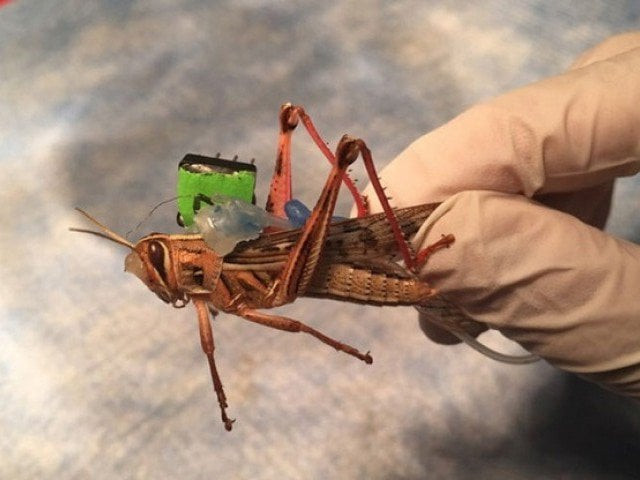National emergency declared to combat locust
PM directs authorities to take steps for preventing crop losses

PHOTO: EXPRESS/FILE
The decision was taken in a meeting chaired by Prime Minister Imran Khan. The meeting also formed a committee, headed by the food security secretary to take steps at the federal level against the locust attack.
Chairing the meeting at the Prime Minister’s Office, Imran directed the authorities concerned to take all the necessary steps on emergency basis to contain the locust outbreak in the country and to prevent crop losses.
The meeting was attended by National Food Security Minister Makhdoom Khusro Bakhtiar, Adviser on Finance Dr Abdul Hafiz Shaikh, Special Assistant on Information Dr Firdous Ashiq Awan, NDMA Chairman Lt-Gen Afzal and the officials from the relevant federal and provincial departments.
The meeting was briefed on the national action plan, which defines responsibilities of the federal and provincial departments and the national and provincial disaster management authorities.
The prime minister said that protection of agriculture and farmers was the government’s priority. “The federal government will take all possible steps and provide required facilities to protect crops from any possible danger with special focus on the danger of locust,” he added.
Later, Dr Firdous tweeted that the government had declared national emergency to combat locust. She said that a committee had been constituted to take necessary steps at the federal level, adding that it would be headed by food security secretary with the NDMA chief as its focal person.
The locust was first spotted in the country in March last year and its swarms later spread over 900,000 hectares in Sindh, South Punjab and Khyber Pakhtunkhwa, damaging standing crops and trees worth millions of rupees.
The issue was also raised in the National Assembly on Friday through a calling-attention notice by Malik Ehsanullah Tiwana. National Food Security Minister Khusro Bakhtiar responded that Rs7.3 billion would be spent in one and a half year to combat the attacks.
Last attack of the locust in Pakistan was in 1993 but after that year, the Plant Protection Department, which is responsible for dealing with the problem, was neglected, the minister said. “Its [spray] planes and vehicles need repair,” he told the lawmakers.
Bakhtiar said that the prime minister had taken notice of the situation and issued necessary instructions to the representatives of the federal and provincial governments, who had come up with a plan of action to be implemented in one and a half years.
“Action has been taken against the insect over 0.3 million acres and aerial spray was done on 20,000 hectares,” he said. “District administrations, voluntary organisations, aviation division and armed forces are put into operation to combat the attack and save the crops.” he added.
“Due to persistent efforts of the government and an early release of Rs500 million, the crops of rice and cotton are saved from the locust attack,” he said. He proposed that a National Assembly committee should be tasked to help monitor the situation and give feedback to the government.
Speaking on a point of order, Rana Tanveer demanded that a special committee should be formed to ascertain the causes of sugar and wheat crises and reveal names of those responsible for the shortages of these commodities.
With additional input from APP



















COMMENTS
Comments are moderated and generally will be posted if they are on-topic and not abusive.
For more information, please see our Comments FAQ